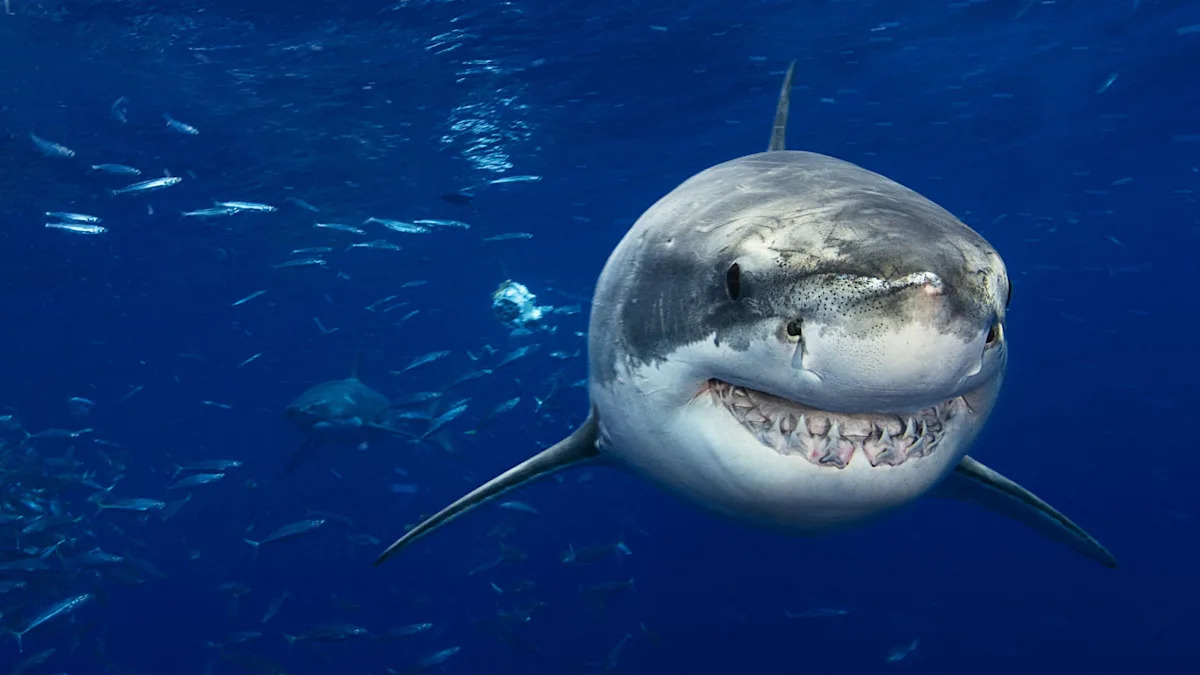Sharks are known for their razor-sharp teeth, but a new study warns that rising ocean acidity could leave even the sea’s fiercest predators with weaker, more brittle bites.
At the heart of the problem is ocean acidification, a process driven by human-caused carbon dioxide emissions. As Sara Tonks, weather.com digital meteorologist and marine science expert, explained: “Basically, what happens is as there is an increased amount of carbon dioxide in our atmosphere, that’s getting absorbed by the oceans and that’s resulting in a higher concentration of hydrogen ions. More hydrogen means more acidic water.”
The research team behind the study tested this effect by placing blacktip reef shark teeth in artificial seawater at two pH levels: the current ocean average of 8.1 and a more acidic 7.3, which is what scientists project it to be by the year 2100 if emissions continue unchecked. Within just eight weeks, the teeth in the acidic tanks showed alarming damage.
“The teeth became degraded and slightly corroded and became more brittle,” Tonks said. “In a more acidic ocean, sharks’ teeth are going to be less healthy.”
That doesn’t necessarily mean sharks will swim around completely toothless. As Tonks noted: “Most likely they’re still going to grow teeth, but their teeth are going to be less strong overall, so they’re going to have a higher chance of breaking teeth, losing teeth.”
(MORE: Can Sharks Predict The Weather?)
Healthy teeth are crucial for sharks, not only to hunt prey but also to survive on diets that often include shellfish and crustaceans.
“Just like humans need teeth to chew food, sharks use teeth to chew food,” Tonks said. “A lot of sharks eat shellfish and crustaceans, so they need those teeth to crunch down on shells. So without teeth to safely eat food, then they’re going to have a less healthy diet and ultimately become potentially malnourished.”
So why should people care if sharks lose their bite? Beyond their fearsome reputation, sharks play an essential role in keeping oceans healthy.
“Sharks are very important parts of our ecosystems,” Tonks explained. “They help with the distribution of nutrients in our oceans. … Everything is connected, so you can’t just take out sharks and expect things to be OK.”
(MORE: 2025 Becomes Record Year For Manatee Rescues)
And the changes may happen faster than many expect. The teeth in the experiment showed signs of damage after only two months. “Even over eight weeks they saw degradation,” Tonks said.
That might seem slow, but over decades, it adds up.
The impacts of acidification won’t stop with sharks. Shellfish and other marine life that rely on strong shells and skeletons are also at risk. “They’re going to have less ability to be healthy in our oceans,” said Tonks. “So that trickles all the way up to us because we eat a lot of the things that live in the ocean or we eat the things that eat the things that live in the ocean.”
(MORE: 4 Things Shark Specialists Wish You Knew)
The study shows that climate change doesn’t just melt ice or raise seas; it alters the very biology of the creatures we depend on. As Tonks put it: “When the food web of marine ecosystems is disrupted, that causes rippling effects throughout a lot of other organisms — ourselves included.”

